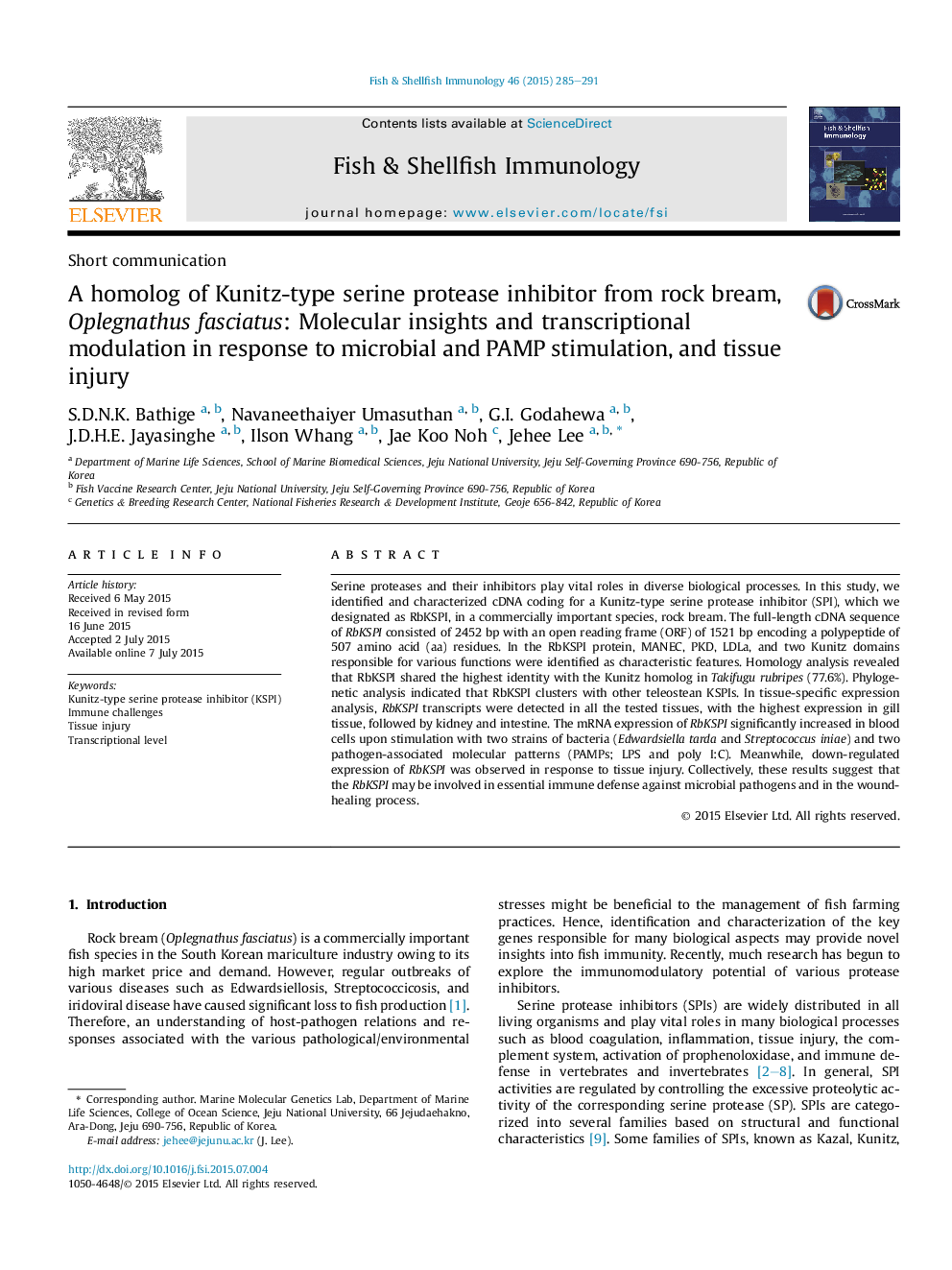| Article ID | Journal | Published Year | Pages | File Type |
|---|---|---|---|---|
| 2431203 | Fish & Shellfish Immunology | 2015 | 7 Pages |
•A novel Kunitz-type serine protease inhibitor was identified from rock bream (RbKSPI).•The expression of RbKSPI transcripts was highly detected in gills, kidney and intestine, respectively.•RbKSPI mRNA expression can be altered by pathogens and PAMPs.•RbKSPI showed a potential impact towards wound healing process.
Serine proteases and their inhibitors play vital roles in diverse biological processes. In this study, we identified and characterized cDNA coding for a Kunitz-type serine protease inhibitor (SPI), which we designated as RbKSPI, in a commercially important species, rock bream. The full-length cDNA sequence of RbKSPI consisted of 2452 bp with an open reading frame (ORF) of 1521 bp encoding a polypeptide of 507 amino acid (aa) residues. In the RbKSPI protein, MANEC, PKD, LDLa, and two Kunitz domains responsible for various functions were identified as characteristic features. Homology analysis revealed that RbKSPI shared the highest identity with the Kunitz homolog in Takifugu rubripes (77.6%). Phylogenetic analysis indicated that RbKSPI clusters with other teleostean KSPIs. In tissue-specific expression analysis, RbKSPI transcripts were detected in all the tested tissues, with the highest expression in gill tissue, followed by kidney and intestine. The mRNA expression of RbKSPI significantly increased in blood cells upon stimulation with two strains of bacteria (Edwardsiella tarda and Streptococcus iniae) and two pathogen-associated molecular patterns (PAMPs; LPS and poly I:C). Meanwhile, down-regulated expression of RbKSPI was observed in response to tissue injury. Collectively, these results suggest that the RbKSPI may be involved in essential immune defense against microbial pathogens and in the wound-healing process.
